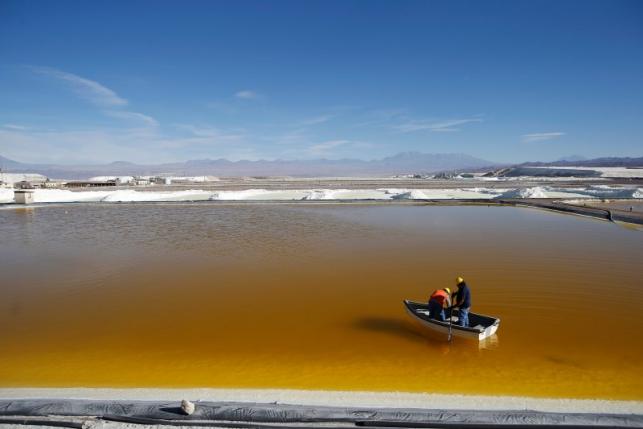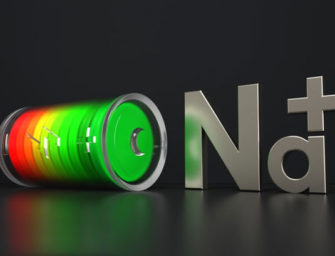Is lithium the new gasoline?
The rush for “white petroleum” – the essential ingredient that powers rechargeable batteries in everything from phones to electric cars – arrives in South America, which has most of the world’s reserves.
Move over, petroleum. Lithium, the silver-white substance that powers everything from our phones to our electric cars, is the new hot commodity.
Escalating demand for lithium may lead investors to Argentina, Bolivia and Chile, which sit on more than two-thirds of the world’s reserves of the soft metal.
Called “white petroleum,” lithium is an essential and irreplaceable element of rechargeable batteries that is becoming increasingly common in devices from electric automobiles to telephones.
Demand is skyrocketing as Tesla prepares to start production of its Model 3 battery powered car for mass sales. Tesla says its production target for electric cars alone – 500,000 vehicles by 2020 – could create a need equal to all the lithium currently being produced.

Tesla Model 3 launch with lithium battery
One consulting firm, Stormcrow Capital, estimates global demand will outstrip supply by 2023.
Lithium investment becomes attractive
As electronics manufacturers scramble to secure supplies, investors are giving lithium another look.
Virtually the only commodity to increase in price in 2015, the price of lithium has soared to $6,400 per ton globally and reportedly to as much as $13,000 on some orders in China.
Until recently, the business environment in Argentina and Bolivia was unfriendly to investors while Chile maintained strict controls on lithium production. However, according to Reuters, that may be changing.
The South American reserve, called the “Lithium Triangle,” straddles the borders of the three countries and accounts for 70% of the world’s reserves.
Chile sells deposits
Chile, the second largest producer of lithium in the world, has begun to sell state lithium deposits and is restructuring the way it manages its resources, moves that could inspire greater investment confidence and boost production.
Chile’s dry desert climate is most favorable for lithium production and the country’s free-market economy is attractive to investors.
Two companies, the local firm SQM and foreign-owned Rockwood, have operations on Chile’s vast Salra de Atacam salt flat. In recent years, authorities have accused SQM of market manipulation and the company is in arbitration with the state economic development agency over royalties from the operation.
The U.S. chemical company Albermarle Corp. last year bought Rockwood for $6 billion and said it intended to triple lithium output in Chile. The government, meanwhile, favors public-private partnerships and plans to put more deposits up for bidding. SQM also wants to increase production if it can resolve the royalty dispute.
“Chile is willing to work with anybody who wants to explore and produce ore, provided they comply with Chile’s requirements and standards,” Mining Minister Aurora Williams said.
Business-friendly Argentina
Meanwhile, Argentina last year installed a new, business-friendly government that plans significant changes that could make the nation more attractive to investors after a decade of protectionism. Argentina is the third largest producer of lithium in the world after Australia and Chile.
Thom Hodgson, CEO of Western Lithium, said Argentina has a “major opportunity” to increase its lithium exports. Western Lithium plans to begin lithium mining in Argentina next year.
Argentine Mining Secretary Jorge Mayoral said major automakers including Toyota and Mitsubishi also have been in the country looking for a stake in lithium development.
“For 10 or 12 years, (Argentina) was a do-not-invest zone,” Hodgson said. With the new government, “the tone of doing business has just swung 180 degrees.”
Bolivia more challenging
After Argentina, China and Zimbabwe are the fourth and fifth largest producers of lithium. It is also extracted in Portugal, Brazil and in the United States, where mining is centered in Nevada.
While Chile and Argentina work to gear up production, Bolivia may be left in the cold.
With the largest reserve of lithium on the planet, Bolivia has long wanted to become the “king of lithium.” But the country also has a highly challenging environment for mining the metal, including a rainy climate and other chemicals mixed in with lithium deposits.
John Haykawy, president of Stormcrow Capital, said because investors also mistrust the business environment, Bolivia is likely to be “shunted to the side for an extended period.”
















There are no comments
Add yours